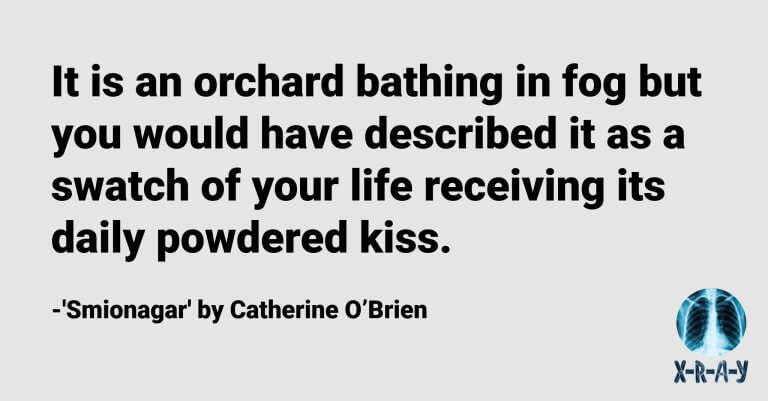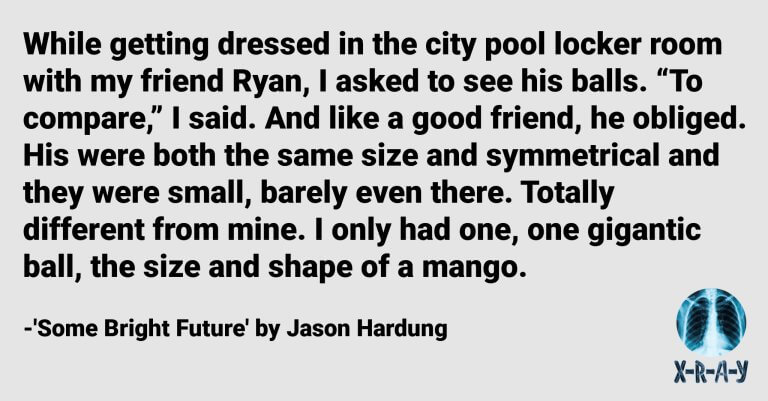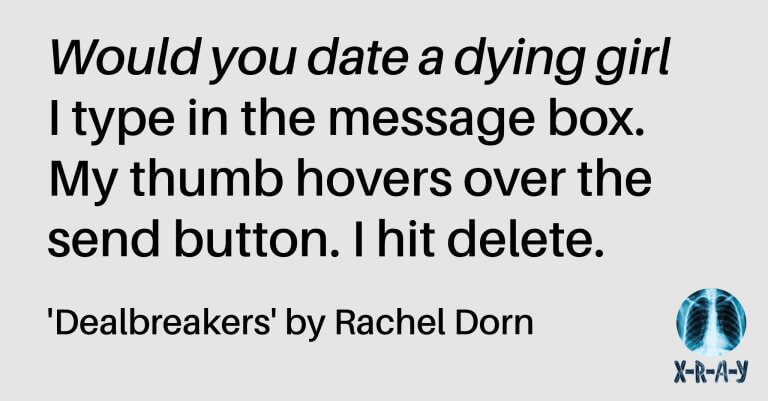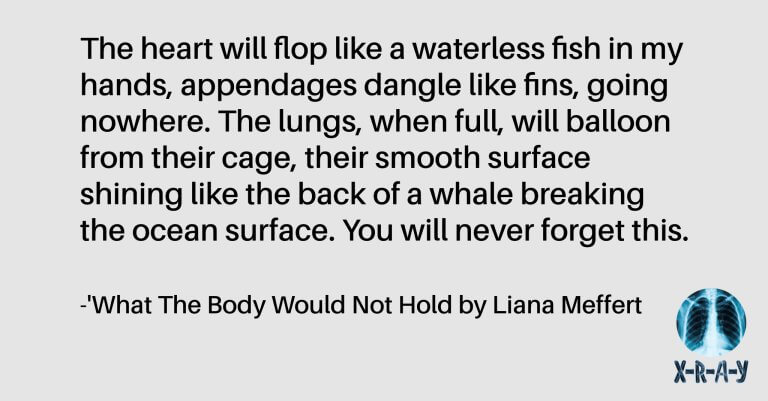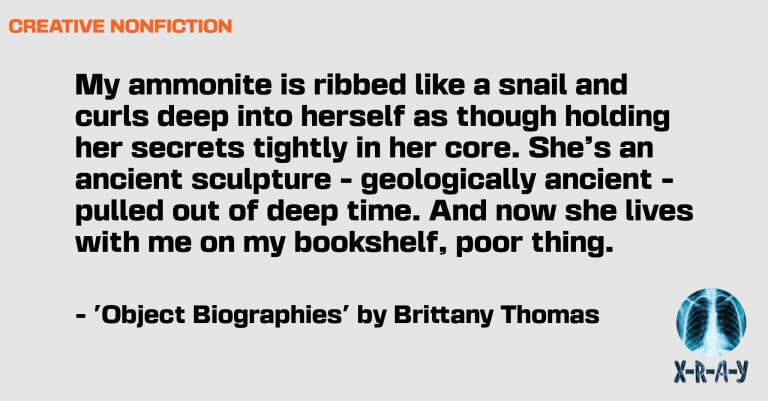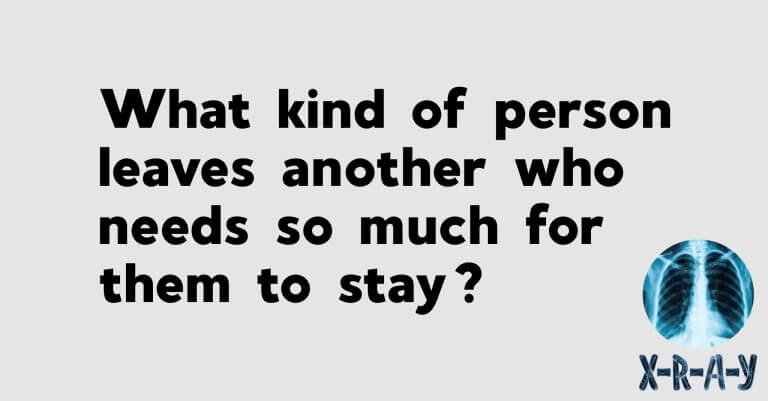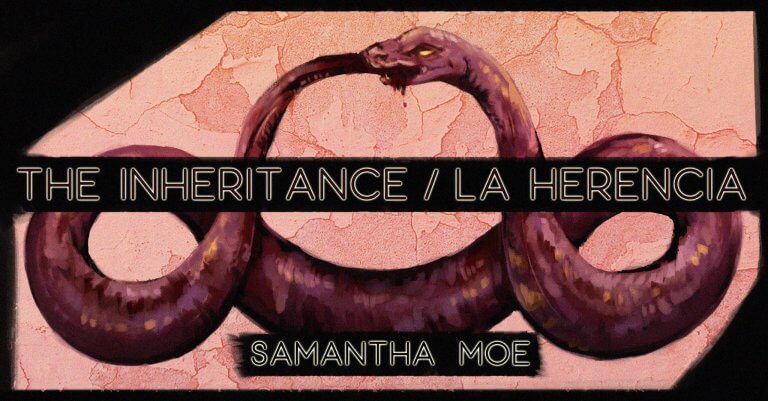
I ALWAYS SAY I LOVE YOU FIRST by Bob Hill
***
Zuzana. She existed in the middle of things, arriving as she did sixteen years after the first time that I had experienced true love and thirteen years before the place that I am now, which is alone. I am writing to you tonight from a one-bedroom walk-up which is situated directly across from a post office, roughly one half-block from a railway (but not a train station), and approximately two-tenths of a mile from the Lehigh River in Northeastern Pennsylvania. Nothing happens here, and the townspeople prefer it that way. On an April night when the weather allows for the windows to remain ajar, one can hear the neighbors coughing from a hundred meters away, just as one can hear the diesel blast of the tractor trailers barreling hard across the I-80 bridge. This is not a place where I would have envisioned myself, nor am I the person whom I would have envisioned myself as becoming. I am a shipwreck, and I have washed ashore here. To some extent, I have been subsisting in exile, even though I am financially secure (at least for the time being), and I have a meaningful job at a company that emphasizes the right things. For me, exile exists as a place where, to quote the poet and essayist Elisa Gabbert, “not suffering [becomes] a form of suffering.” My life is calm here, but I prefer the chaos. I seldom reflect upon the periods in my life when fortunes soared and stasis ruled the day.A bit of context. When I left New York City, I had no money and no prospects. I had been sober for five years; I had not dated anybody for four. During the summer of 2017, I took to splitting my time between Manhattan and the Poconos. In short order, I had been offered a full-time job in the Poconos area, and at about the same time, I had met a woman there, as well. In the job, I saw an opportunity for stability. In the woman, I saw an opportunity for escape. But, oh, how much of love is dependent upon slanted truths and omitted details? It’s that old story wherein one partner says to the other, “Do not move here on account of me,” and the other partner insists that he or she had been planning on moving there all along. Only this woman and I, we were not partners so much as we were co-conspirators. Our first kiss felt arcane. It felt like witchcraft, or perhaps the beginning of some unholy alliance. The two of us were sitting by a fire in the backyard of a lakehouse, and the October breeze came rolling in from off the water, and the embers crackled, and the two of us got high, despite the fact that I would rarely get high even before I had gotten sober. I made a pass, and this woman rebuffed me. Shortly after, she relented, but only if I would agree to take a sip of wine first. And so I did. If I wanted a second kiss, this woman contended, then I would need to smoke a cigarette with her. And so I did. At some point during that cigarette, this woman looked toward the fire and she said, “I’m gonna hurt you, Bob.” She said that with concern and she said it with forewarning, and I ignored her, and that is on me. By mid-November I had fallen in love with this woman, and I told her as much. She did not tell me that she loved me until two months later, when the two of us were lying in bed one afternoon. She had her back turned toward me, and she whispered the words as if they were an allocution, or a mea culpa. (She had admitted to sleeping with an ex of hers ten days prior.) Our relationship lasted from October until May, and there were several breakups in between. One night when it was all but decided, I went over to this woman’s house and we put her kids to bed, and we went downstairs and we sat in the living room and we watched TV. My heart felt light, and so I smiled, and this incensed her. “Whatever it is you’re feeling,” this woman said to me, “I don’t feel it.” – a comment that dug its nails into my psyche. When I went home, I wrote these words inside a notebook: People who are in need of saving should not develop a Messiah complex. It brings things low, and it breeds enablement. Our dismount was awkward, and it took place in stages. By early spring, the two of us were living seventy-five meters apart along the same street. We could wave to each other in lieu of texting. We could walk over to see each other in lieu of a phone call. Less than a month after this woman and I had called it quits, she took to seeing a woodcutter who lived one block away; a woodcutter who had also been the previous tenant in the apartment where I was the current lessee. I cursed the wind. I began to long for the city, where sorrow only lasts until one turns the corner. There are no soulmates in a metropolis. There are no soulmates anywhere, really. Soulmates are for platitudes. Soulmates are for small towns and bad fiction. Soulmates are for suburban stopovers where the talent pool is limited and where people marry for lack of knowing how else to proceed. In the wake of this affair, I felt unlovable, and, as such, I began to question whether I had been attempting to force love out of people before they could get up the energy to leave. I had a checkered past. I had objectified women. I had been a good boyfriend, but a bad bachelor, and it seemed as if all of that was beginning to pirouette its way back to me in streams.***
Nightfall, and I am looking out a tenth story window from inside the Hotel Richland. The Richland is located along the southern boundary of the Lower East Side. Tonight is Mischief Night, and I have been here for six days. I was initially scheduled to check out this morning, but I added an extra night due to a hangover, my second of this week. The first hangover was mild, and it occurred after a twelve hour binge in Greenwich Village. This second hangover carries with it a reminder of the old ways, of a melancholy that all but shrouded me throughout my thirties. I feel skittish. The only light in the room comes from the ghostly glow of the TV. I am wearing sweatpants and I have the heat turned up to seventy-two. There are fast-food wrappers crumpled up along an end table and there are breadcrumbs in the sheets. I have no cash left in my wallet. I withdrew $220 from my checking account during the overnight hours. This according to a pair of receipts.I feel spineless. I want to divebomb through this window. I want to sweep down low across the rooftops; I want to springboard over ledges. I want to glide my way through Chinatown, then veer left onto the Bowery, toward the colonnades, up through the arches, onto the bridge, where I can dematerialize into a ray of light that’ll cascade like so many particles into the river. I want that. I want to transcend. Only I am stuck here, a fool and his bad choices. I deal in self-deception. As such, I prefer to look out at things that cannot look back. Up here, there is no barrier between what is art and what is architecture, between what is progress and what is preservation. Up here, every bit of skyline is being bought up by the speculators. So many structures, a great many of them already living under the threat of demolition. Will you become a landmark or a relic? It is the quintessential question of aging. I can trace this back to its flashpoint, the glint of the muzzle. Toward the end of 2019, I began to allow myself a drink on occasion. I did this as a matter of ceremony after eight years off the sauce. Only now I am backsliding. I am giving in to the wrong impulses. I am wading into what are both bleak and terrestrial waters. Last night I turned a three hour outing with an old friend into a twelve hour trainwreck on my own. I have no wisdom to impart. I am not penning an advice column. The starch has faded, and my line has gone slack. I look forward to drinking these days. I spend two hours of every binge feeling charismatic, and then I spend the rest of those evenings chasing the glow. I am in the bars again, and being in the bars means barhopping, and, at least for me, that barhopping means a babbling stream of toxic chauvinism and wasted money and awkward rejections and shameful boasts. I lack control. The longer the night, the more compelled I feel to meet somebody, to end up dick-deep in some woman whose name I cannot recall. I pursue this not out of a need for companionship, but as a means of compensating for the extra hours spent desperate and semi-lucid and alone.Be aware that these are the fledgling stages, a series of unremarkable deviations. The skin loosens; the jowls sag. I do not lie so much as I omit details. I commit oversights. I go from running five days a week to running four. Minor variances, but they can lead to a place where the road narrows and there is nothing but the Valley of Gehenna below. I have struggled to reclaim my honor, and I have no interest in an about-face. I need to stop drinking. Nostalgia is for the discarded. Three days from today I will turn forty-nine, and as I enter year fifty, I have occasion to consider that the most gratifying period in my life took place between 2012 and 2016, an incandescent metamorphosis during which I was newly sober and entirely celibate and only sporadically employed, all while still living in New York. Those years felt like deliverance; they felt like nirvana. Those years felt like coasting through a sundrenched mist after a quarter-century spent charging into a headwind with a massive chute fused to my spine. I ate better upon getting sober, and I slept better, and I began to turn inward. I had divorced myself from the conceit that one needs a lover – or some ongoing bevy of sex partners – to make him feel whole. This past August, I received an email from an ex-girlfriend, Meghan, my first true love, and one of the two great loves of my life. Meghan and I were in a relationship from the spring of 1993 until the fall of 1995. I was young and she was younger, and we both had separate worlds we needed to explore. There was a breakup, and following that breakup, Meghan and I lost touch. For a time, I would hear things, that Meghan was doing well and that she had married well, and that she had settled long in Lancaster, Pennsylvania. Meanwhile, there was no way of knowing. I had gone looking for Meghan online, only to discover she had the digital footprint of a person who does not want to be found. But then there was this email, and at the heart of it, a question: Would I be open to Meghan coming to visit me in the Poconos? I was, which is to say that I had accepted. And, thus, one night toward the end of summer, Meghan and I built a fire and we ate outdoors, and we worked through a quarter-century of gasp and void. It was the beginning of something, a reclamation. It was an eleven hour conversation that did not ebb until the dawn. Meghan has been to visit me a few times since that night. Earlier this week, she came here, to the Lower East Side, and the two of us spent a couple of days together. We walked through Little Italy and Tribeca and Washington Square. We went to the Whitney and the Met. We had dinner at the White Horse Tavern, after which we attended the fiction writer Sara Lippmann’s book launch at P&T Knitwear. After P&T, Meghan and I disappeared into the Village, where we got drunk, a good drunk, a warm drunk, the kind of drunk that makes me wish that I was capable of doing things in moderation. Meghan grounds me, and I am spellbound by her. I should also mention that Meghan has been tremendous for my psyche. When things went sour with that woman who had cheated on me, I stopped believing in myself. I took a header into the dark south. Intimacy, or at least the physical manifestation of it, is like a drug. It is like a mainline cocktail to the soul, the sudden removal of which can create a vacuum. I did not want to overcome that emptiness so much as I wanted to avenge it. I wanted to meet somebody, somebody who was fierce and smart and accomplished and who could make me seem attractive by association. And I did meet somebody like that eventually, only when I did, I resorted to drinking because I thought I needed to. This cheapened me, not only in my own eyes, but in the eyes of everyone who had supported me. I could go on for another ten paragraphs. I could expand on the idea of love and its apparent station in my life. I could comment on the age of androgyny and the inevitability of an asexual revolution; of the cultural shift from time management into energy supply. I could tell you that I like to think about love as a way of honoring the principled people in my orbit, but that I also like to think of it as a form of integrity. I could bring matters full-circle by explaining how Besima and I have become the closest of friends, how I met up with Besima this past Thursday, and how we went to see a movie at the Lincoln Square 13. I could run deep along any number of tangents, but instead I would simply like to impart that my life, at its most profound, has been about moving forward. And that my fears, at their most paralyzing, have arisen from remaining idle for too long. Companionship has been a struggle, particularly because I am selfish and I have an overwhelming indifference to remaining on my own. That aside, I feel privileged to be able to sit here and look out across Valhalla on a Saturday in late fall. There is more. There is an ocean. But the room is paid for, and we’ve got time.
